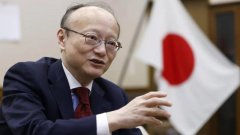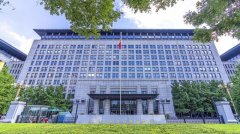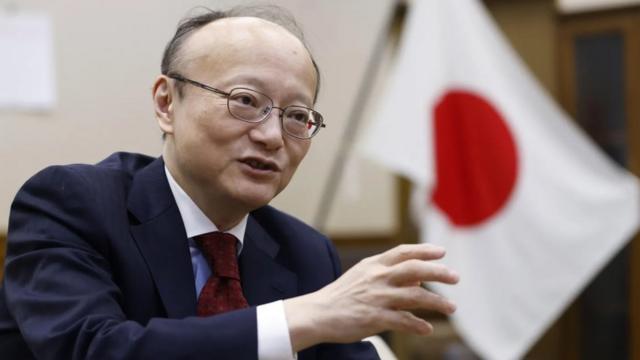
Over the past few years, Masato Kanda has hardly slept.
"Sleeping three hours a night is a bit exaggerated." He said with a smile in an interview with British media in Tokyo.
"I slept for three consecutive hours before I was awakened, but then I returned to the bed again, so if I added up, I slept more."
So why is the 59 -year -old Japanese official schedule so tortured?
Before the end of July, he was the financial officer of the Ministry of Finance, which is responsible for international affairs, and the tallest monetary diplomat in Japan, or the "Yen Tsar".
The key toThis role is to resist the currency market speculators, so as not to trigger the turbulence of the Japanese economy.
Historically, the government will weaken the Japanese currency value through intervention methods.The weak yen is beneficial to exporters like Toyota and Sony because it allows overseas buyers to buy cheaper products.
But during the tenure of Kangtian, the yen depreciated sharply, increasing the import cost of food and fuel, and in a country that was more accustomed to seeing the decline in prices instead of rising, causing a crisis of life costs.
In his three years, the exchange rate of the yen to the US dollar has depreciated by more than 45%.
In order to control the decline of the yen, Mr. Kidda uses about 25 trillion yen ($ 173 billion) to support the currency, which is the first time that Japan has conducted such intervention in nearly a quarter of the century.
"The attitude of the Bank of Japan and the Greater Tibetan province is very clear. They are not intervene at a specific level of currency, but intervene when the market fluctuates too much," Economist Jesper Koll (Jesper Koll)explain.
Japan is now listed by the US Treasury's observation list of potential exchange rate manipulation countries.
But Kanda believes that what he does is not manipulating the market.
He said: "The market should change according to the fundamental aspect, but occasionally it will over -fluctuate because of speculation, and the market cannot reflect the fundamentals because the fundamentals will not change overnight."
"When ordinary consumers that affect food or fuels, we will intervene."
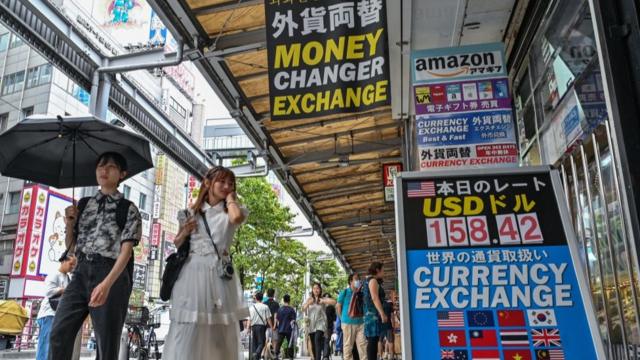
Image source, getty image
The United States and the United Kingdom can increase the value of the country by increasing interest rates, while Japan has been unable to increase borrowing costs for many years due to its weak economic weakness.
Professor Seijiro Takeshita ofUNIVERSITY of Shizuoka said that there is no choice but to interfere with the currency market.
"This is not the right way, but in my opinion, this is the only thing they can do."
Ironically, in recent months, after the Bank of Japan has unexpectedly raising interest rates and changing the new Prime Minister in Japan, Nantian Reality or his successor has not moved a finger.Soaring.
So is it a waste of $ 170 billion in yen support plans?
Kanda said, no, he pointed out that his intervention is actually profitable, although he emphasizes that this is never his goal.
As for whether his actions were successful in the end, he said, "This is not evaluated by me, but many people say that our exchange rate management has prevented excessive speculation."
He added that the final judge should be a market or historian.
After decades of economic stagnation, Mr. Kidada also expressed optimism about Japan's prospects.
He said: "We finally saw the growth of investment and wages, and we have the opportunity to return to the normal market economy."
For this "humble civil servant", the even more surprising heritage is that he has become a star on the Internet because Japanese social media users praise him that he can give a series of artificial intelligence dance videos to the financial marketBring surprise.

AnalyMr. Yuan "
Chen Yan
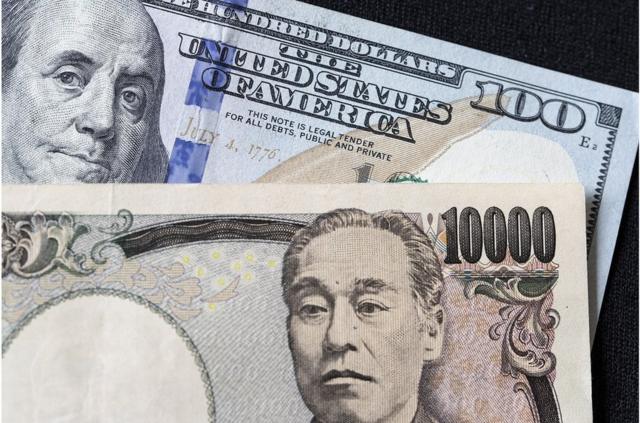
Image source, Bloomberg Via Getty Images
Kangtian can't sleep well. Behind it is the economic distress that has spread in Japan for 30 years.
After the Japanese economy collapsed in the 1990s, there was a protracted stagnation, and Gu Chaoming, chief economist of Nomura Securities, blamed it on "the decline of the balance sheet."
In short, after the bubble breaks, entering the era of the "negative assets" of the whole people, the assets of ordinary people are not worth the mortgage of the bank.Essence
Enterprises are the same. The primary task is not to borrow money to expand, but to make money to repay debts, do not pursue the maximum profit, and pursue the minimum debt.
As a result, letting the government reduce interest rates and super currency, enterprises at most are borrowing money to repay debts, and they are rarely used for investment.The Bank of Japan even reduced interest rates to negative, still unable to boost the economy, and rare monetary policy failed.
Gu Chaoming summarized it as "the disappearance of the borrower", which is the root cause of the long -term stagnation of the Japanese economy.Another side effect is the long -term stability of Japanese prices, and some people buy things in childhood, until middle age has not changed.
After 30 years in such a unique currency environment, a sound of the Russian battlefield broke the tranquility of the yen exchange rate market.

image source, getty image
The logic behindAfter the Russian -Ukraine conflict, international oil prices have soared, and Japanese resources are lacking, and they are industrial export -type countries. The rise in oil prices has led to an increase in industrial costs. In addition, the Fed and the European Bank of China raised interest rates one after another.Maintain super loose monetary policy.The spread between Japan and the United States and Europe has expanded, and funds flow from Japan to Europe and the United States, and the yen depreciates accelerated.
By April this year, the yen depreciated to 160 yen against 1 US dollars. Compared with 12 years ago, the yen was cut against the US dollar exchange rate.A large cabbage increased by more than 50%, and a bowl of Japanese beef noodles increased by more than 20%.
It is not no good. From the depreciation, almost all the currencies in neighboring countries have appreciated the yen, and the purchasing power is stronger, making the popularity of travel to Japan soaring.
But the pain in the local manufacturing industry and the working class is deep. The price of raw materials in the former surged, and the actual purchasing power of the latter declined rapidly.
In this context, the real people of Kanada have been out of the horse, and they have changed the monetary policy of the past 30 years and took out huge amounts of funds to boost the yen, which is very different from the previous Japanese bureaucratic impression.
Although his grades are controversial, Japanese netizens are not too much to call him "Mr. Raida".


